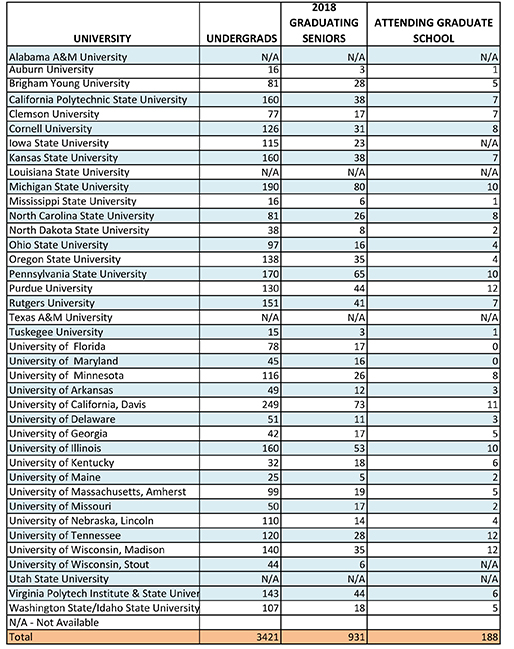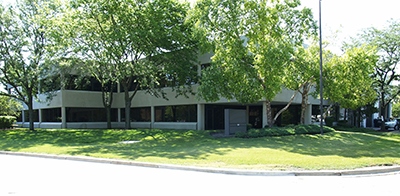My food safety journey was nurtured at an early age by my parents. I grew up in a farming family in a country (Kenya) where small scale food producers are the backbone of the economy. We lived within an agricultural research institute where my father worked. This enabled me to develop a lived awareness of the myriad of challenges that producers face, including affordable ways to manage pests and other food safety hazards.
Along with food safety, my parents instilled in me fundamental concepts of different ways to combine and prepare foods for optimal nutritional benefit. My late father’s work as a farm manager exposed me to animal and plant health and management, while my mother’s expertise in home economics laid the foundation for what has become my career path.
In my everyday formal and informal interactions with people, I try to inspire a passion for the science of food with special attention to safety. I believe that the debates around sustainability, climate change and food security should more deliberately include food safety as a key element, rather than a tangential afterthought.
The Path to a Career in Food Safety
After high school, I came to the U.S. for higher education, starting out as a Zawadi Africa Education Fund undergraduate scholar in biochemistry. I wanted to go into public health. My initial goal was medical school. However, after several internships shadowing doctors and surgeons and caring for terminally ill cancer patients, I decided to pursue a different path in public health. I chose to work in the food industry for a year, during which I explored opportunities for graduate school. By combining my history in food production, training in biological sciences and desire to contribute meaningfully to human health, I eventually opted to undertake a master’s in food science, studying the antimicrobial properties of plant-based extracts against known foodborne pathogens.
Subscribe to the Food Safety Tech weekly newsletter to stay up to date on the latest news and information on food safety and quality.
After completing my master’s, I applied for and was awarded the prestigious Schlumberger Faculty for the Future Fellowship to pursue a doctorate in food science. In my dissertation, I built genome scale metabolic models to explore weaknesses in the Escherichia coli genome that could potentially be exploited by manipulating nutrient components in food matrices. I also evaluated the prevailing approaches to Extension food safety education in Minnesota, and underscored the value of collaboration between regulators, educators, and food producers to achieve ideal culturally relevant education and training. This turned out to be a long and challenging experience that taught me to be patient and resilient. I also learned to advocate for myself and other students.
Finding My Passion
Over time, I became more interested in the safety subfield. I discovered a passion for policy, which narrowed down my career interest to food safety regulations. Through mentorship and deliberate networking, I expanded my understanding of the history of food safety in the U.S., and the role that the Codex Alimentarius plays in the global food system. Some of the Books that shaped my understanding included Outbreak: Foodborne Illness and the Struggle for Food Safety by Lytton, Timothy D., and Food Systems Law by Marne Coit. I was also inspired by my Food Quality professor, whose industry experience brought to life many of the concepts we discussed in class.
After completing my dissertation, I was hired by the University of Minnesota Extension as a food safety specialist. In this capacity, I have two primary roles: research and outreach. My research focuses on the role of human behavior in foodborne illness, and hinges on the concept of food safety culture (the attitudes, beliefs and values about food safety practice). My interest in this specific area was inspired by two books—Food Safety = Behavior: 30 Proven Techniques to Enhance Employee Compliance and Food Safety Culture: Creating a Behavior Based Food Safety System—both written by former FDA Deputy Commissioner for Food Policy & Response Frank Yiannas.
I continue to build on the lessons learned from my dissertation, working in collaboration with other scientists across the North Central Region. Specifically, I elevate the knowledge and experiences of local food producers and empower them to prioritize science-based solutions to challenges in formulation, processing, packaging, labeling and points of sale. My goal both through research and outreach is to enable small scale food producers to embody the critical role they play in local food systems, especially because consumers sometimes assume that local food means safe food.
It is not enough for food handlers to learn about food safety, and it is not practical to use scare tactics to get them to comply with regulatory requirements, because these are temporary solutions. Instead, I believe it is critical to alter behavior and the perception of food safety practice. This more readily happens when the handler takes ownership of food safety as part of their value system, rather than as a regulatory obligation.
Challenges Posed by the Growing Cottage Food Industry
The biggest challenge I face in my current role is the growing local food movement and cottage food industry. Today, there are almost 8,000 registered cottage food producers in Minnesota, all of whom can legally produce and sell non-potentially hazardous foods in their uninspected home kitchens. While the Minnesota Cottage Food Law only allows shelf-stable products, other states, such as Wyoming, have broader Food Freedom Laws that allow the sale of products including poultry. The undercurrent driving the local food movement is consumer demand for sustainable, locally sourced food, with a tangible connection to the producer. The chaos in the global food system during the pandemic also contributed to growth in local food supply. While all these changes are positive and contribute to food security and sovereignty, the question of safety still lingers.
Historically, work around the safety of food has focused on corporate manufacturing. Now the tide is slowly shifting towards local food systems, but more needs to be done to understand the food safety culture in this context. Concomitantly, we must develop training and education opportunities that account for the diversity of producers, including emerging (first generation) farmers, farmers practicing covered agriculture, immigrant farmers, and small and medium scale processors. For instance, cottage food producers in Minnesota maintain a list of allowed products, which has to this point been predominantly Eurocentric. However, as a sanctuary state, Minnesota is home to a very diverse population, with more than 150 languages spoken in the Twin Cities. As more immigrants learn about the cottage food industry, newer multi-cultural food items will be considered for inclusion on the list, which requires food safety analysis and shelf-life studies. These challenges present opportunities for collaborative problem solving through research that incorporates existing practical knowledge among key stakeholders.
Thoughts for Students Considering a Career in Food Safety
Food safety professionals choose this path because we deeply care about protecting the consumer. Episodes of foodborne illness are unnecessarily burdensome and quite often life threatening. Additionally, foodborne outbreaks erode consumer trust in the food industry and exert a heavy financial burden on the public health system. Many of the long-term impacts of foodborne illness are unknown to the general public but have devastating effects on patients and their families.
Choosing to be a food safety scientist means becoming an advocate, the voice of millions of people who expect—as they should—that every food item made available to them is inherently safe. It becomes your job to work in collaboration with regulatory authorities to keep unsafe food out of commerce. Sometimes you will be on the processing floor, actively training and managing the production team and ensuring everyone follows the food safety and defense plans. Other times, you will be in the C-Suite, bringing the voice of the food safety team to management to ensure that the company walks the talk when it comes to food safety. And every day, you will be the consumer that relies on the integrity of professionals such as yourself to protect you and your family from foodborne illness.










